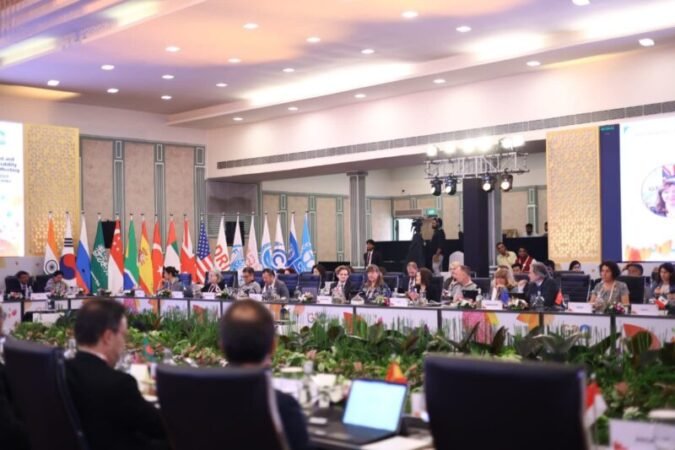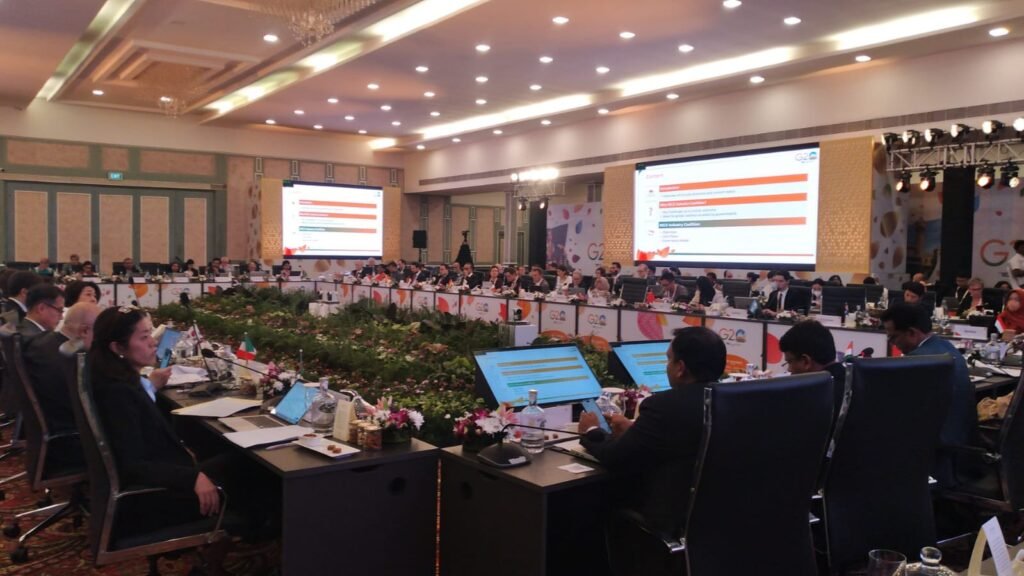G20 Takes Steps Towards Ecosystem Restoration, Climate Resilience, and Circular Economy

The first meeting of the G20 Environment and Climate Sustainability Working Group (ECSWG) concluded in Bengaluru with a positive outcome, as all participating countries expressed their commitment to work towards the three priority areas:
- Arresting land degradation, accelerating ecosystem restoration, and enriching biodiversity
- Promoting a sustainable and climate-resilient blue economy
- Encouraging resource efficiency and circular economy
The three-day meeting, which took place from 9-11 February 2023 and was led by the Ministry of Environment, Forests, and Climate Change (MoEFCC) of the Indian government, saw constructive discussions on these issues among the G20 countries. The meeting began with a side event focusing on the sharing of best practices for restoring ecosystems affected by forest fires and mining, followed by visits to the Bannerghatta National Park and Kalkere Arboretum to showcase Karnataka’s forest ecosystems and wildlife protection efforts.
The second day began with an opening address by the Union Minister of Housing and Urban Affairs and Petroleum and Natural Gas, Hardeep Puri, followed by a welcome address by the Secretary of MoEFCC, Leena Nandan. She emphasized India’s commitment to addressing environmental and climate change issues through an action-oriented, consensus-driven approach and the close collaboration of the ECSWG with other G20 working groups.
The discussions on the second day focused on methods of restoring land-based ecosystems affected by human activities and enhancing the Global Biodiversity Framework. The discussions in the second half of the day centered on creating circular economies in various sectors, including steel and biowaste, and the role of extended producer responsibility. The idea of a G20 industry coalition for resource efficiency and circular economy was also discussed.
The third day focused on the theme of “Sustainable and Climate Resilient Blue Economy,” with the discussions covering issues such as marine litter, coastal and marine ecosystems, and marine spatial planning. The Indian presidency presented the inception report of a technical study on this topic and announced the publication of the 5th report on actions against marine plastic litter. Delegates expressed support for sustainable use of ocean resources, prevention of pollution and littering, and protection and enhancement of biodiversity.

Towards the end of the meeting, the Indian presidency announced plans to convene an Ocean 20 dialogue to facilitate further discussion on the blue economy and to coordinate a beach cleaning event in May 2023. The importance of adopting sustainable lifestyles to reduce single-use plastics and prevent littering was emphasized. The discussions from this meeting will continue at the second ECSWG meeting scheduled for 27-29 March 2023 in Gandhinagar.


 Glimpses
Glimpses 















